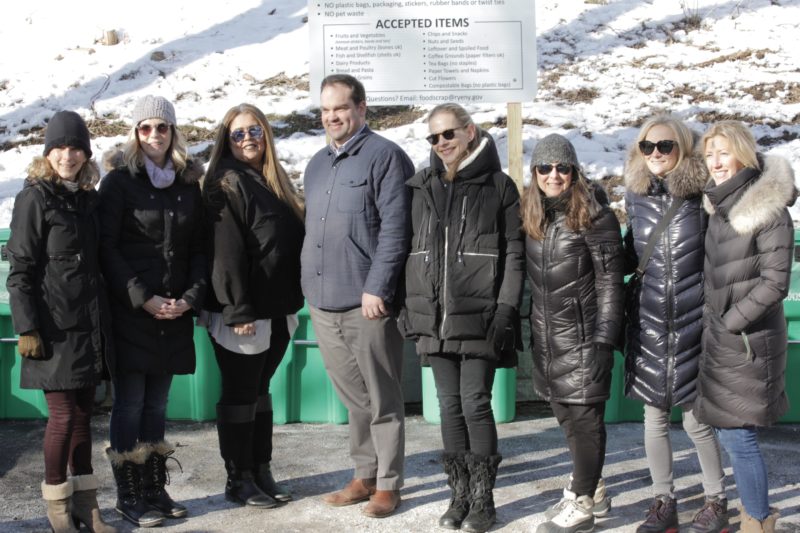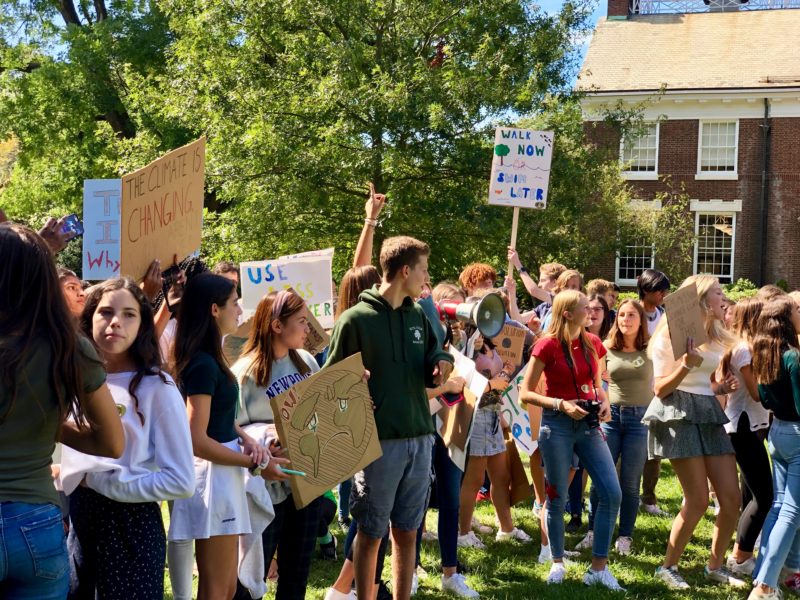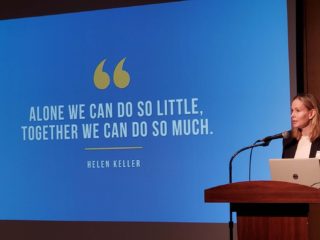Despair. That’s the underlying vibe I get these days from the environmental community. I understand. Taking action to protect the environment is an endless struggle for seemingly little gain. Even worse, it seems that our valiant efforts are erased by dire news, the most recent of which is an alarming United Nations report on the world’s oceans and aquatic life.
In the face of these apparent doomsday predictions, what’s the point of doing anything at all?
Why Taking Action is Essential
Everyone Has A Role to Play
You’re right: we are facing a monumental crisis, but inaction isn’t the solution. This is a problem where we need all hands on deck, and taking action on climate change should be embedded in our mindset.
Everyone has – and should have – a role to play in slowing the pace of climate change. I offer ideas below, but no individual act is too small. What’s essential is understanding that we have a collective responsibility to make a change.
Embrace Small Gains
Don’t worry about saving the planet. Let me rephrase that: the big picture is about saving the planet, but your part in this massive project (for lack of a better description) can be an individual effort. Yes, your contribution will likely be small; tiny, perhaps. But these tiny efforts, made by millions, do make a difference. And they do get noticed.
Taking Action is Making a Difference

Corporate America Takes Notice
It may not be immediately evident, but these thousands – millions – of individual actions are being noticed. How do I know? Take a look at recent announcements by major corporations:
- Marriott’s decision to eliminate single-use toiletry bottles from all its hotels.
- Ball Corporation’s introduction of infinitely recyclable, lightweight aluminum cups, as an alternative to plastic versions.
- Google’s announcement that it will invest $2 billion in wind and solar energy, the biggest corporate purchase of renewable energy in history.
- Hasbro’s elimination of plastic packaging from all its games. (Game pieces will still be plastic, but you can mail them to Hasbro for recycling.)
- Zara brand’s goal to use only organic, sustainable, or recycled fabrics by 2025.
Even the plastics industry is getting in on the sustainability-message bandwagon. Though it remains to be seen whether their purported green initiatives (including the latest, chemical recycling) are truly climate-friendly, the main point is that all these green business decisions are being made in response to consumer demand. What’s more, these companies are proudly publicizing their eco-friendly initiatives and using them as a marketing tool.
In addition to existing companies making environmentally friendly changes, new, green businesses are cropping up, from zero waste stores to package free delivery services. (Of course, it’s always important to check whether these new products and services are legitimately eco friendly and not just attempts at greenwashing.)
Taking Action in the Legislature
The flurry of legislative action at the state and local levels is further proof that your calls for change are getting noticed. Lawmakers recognize the urgency of the climate crisis and are taking action in the legislature.
Plastic bag and plastic straw bans are just two types of laws, but legislators are also working on laws that protect open spaces, wildlife, increase renewable energy, and more.
Bold moves are being made at the state level: California, followed recently by New Mexico, has set its own fuel economy and pollution standards for cars. New York State passed a landmark climate protection act, setting the state on an ambitious goal of 100% carbon neutrality by the middle of the century. New Jersey passed one of the most comprehensive single-use paper and plastic bans in the country.
What Can You Do?

The good news is that there are endless ways, small or large, to make a difference.
Small, But Effective, Changes
- Reduce your carbon footprint, at home, and while you’re on the go.
- Reduce purchases of unnecessary consumer items by reusing what you have. When you’re ready to toss items out, recycle, but recycle right!
- Join a group committed to climate action or sustainability initiatives.
- Support eco-friendly businesses by buying their products and using their services.
- Practice organic landscaping, free of synthetic pesticides and fertilizers.
- Learn why food waste is one of the largest emitters of greenhouse gases. Then, learn ways to reduce that waste. One easy way: freezing food!
- While you’re working on reducing food waste, consider eating less meat (a key contributor to climate change) and eat more veggies!
- Ditch the disposables, particularly plastic ones, like plastic straws and plastic bags.
- Stay informed! For literature and resources related to climate change and the environment, see Green That Life’s Best Environmental Books list and Lesson 1: Stay Informed of Climate Action: 5 Effective Lessons for Engaging Your Community.
- Vote! Not enough of us vote, or we only vote during a general election. Make a commitment to vote in every election, from the school board to the presidential. See Green That Life’s Voter guide for resources on how to register, learn about candidates, and even where to vote in your town.
Taking it to the Next Level

Get involved! There are so many issues that you can advocate for. A few ideas:
- Encourage others to practice healthy landscaping through a Healthy Yard Campaign. I helped start one, and share my tips on how to start your own, here.
- Start a plastic straw reduction campaign to stave plastic straws pollution.
- Advocate for a plastic bag reduction law. I spearheaded one in my town. Follow these steps to pass one in yours.
- To help reduce food waste, support community composting. I helped start one in my town and it has been enormously popular.
Help Yourself: Taking Action Makes You Feel Better
I return once more to the despair vibe. Taking action is one way to ease the (eco) anxiety and general feelings of helplessness, but it’s important to take care of yourself and recharge before forging ahead again!









